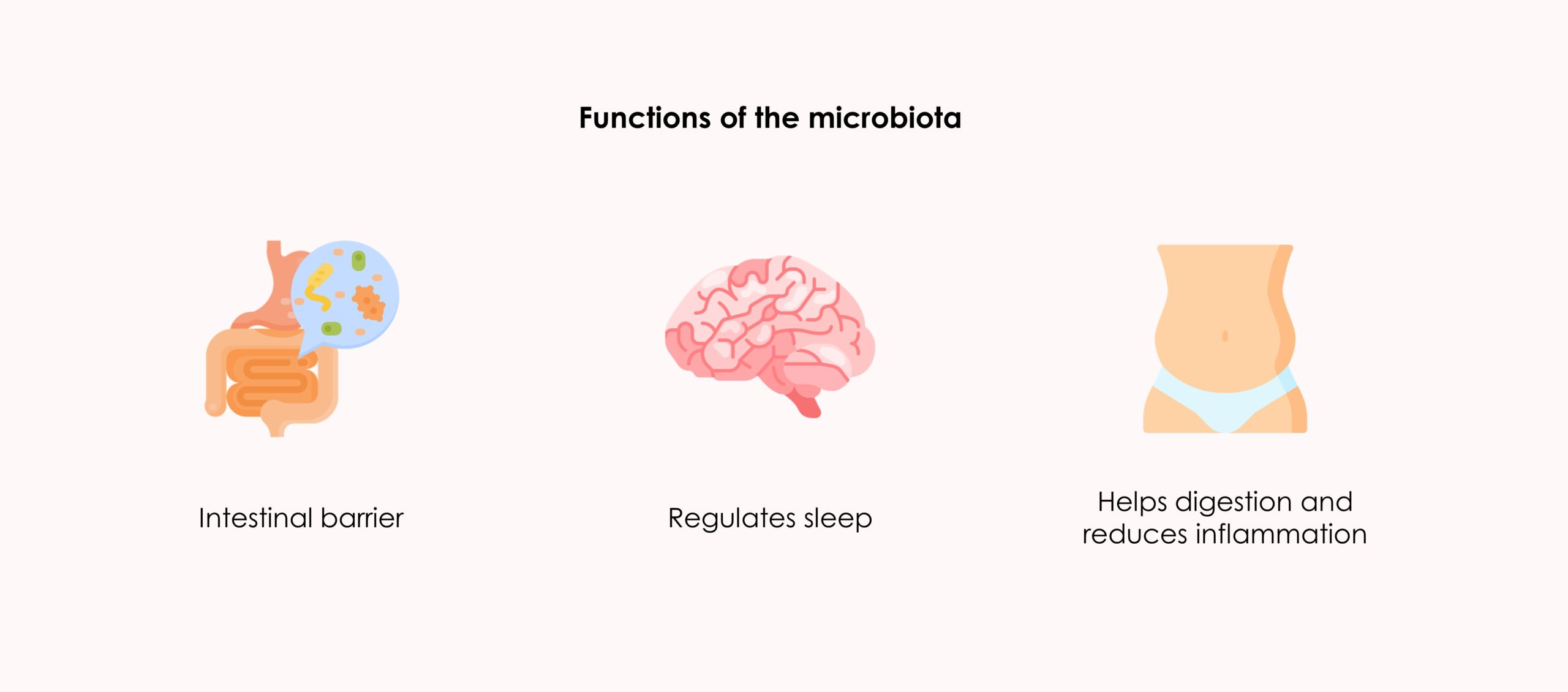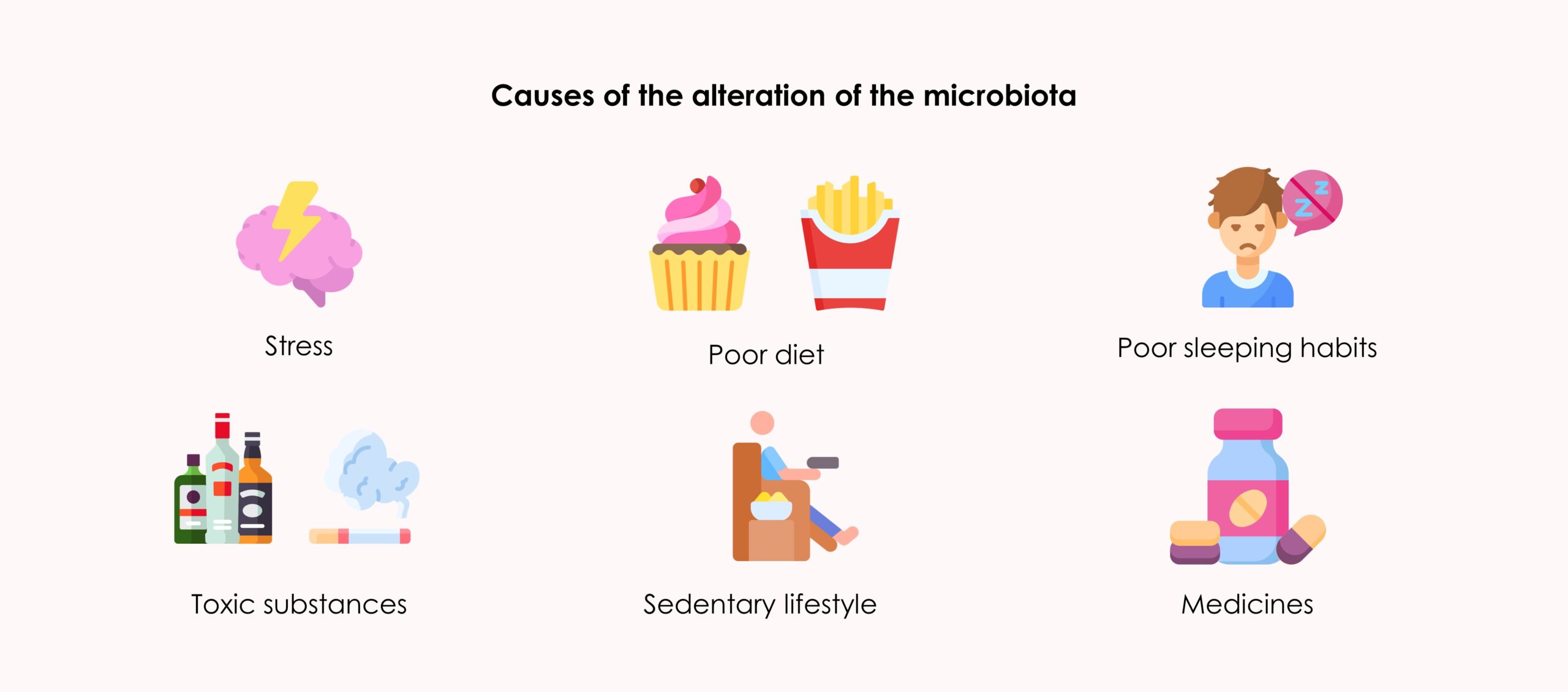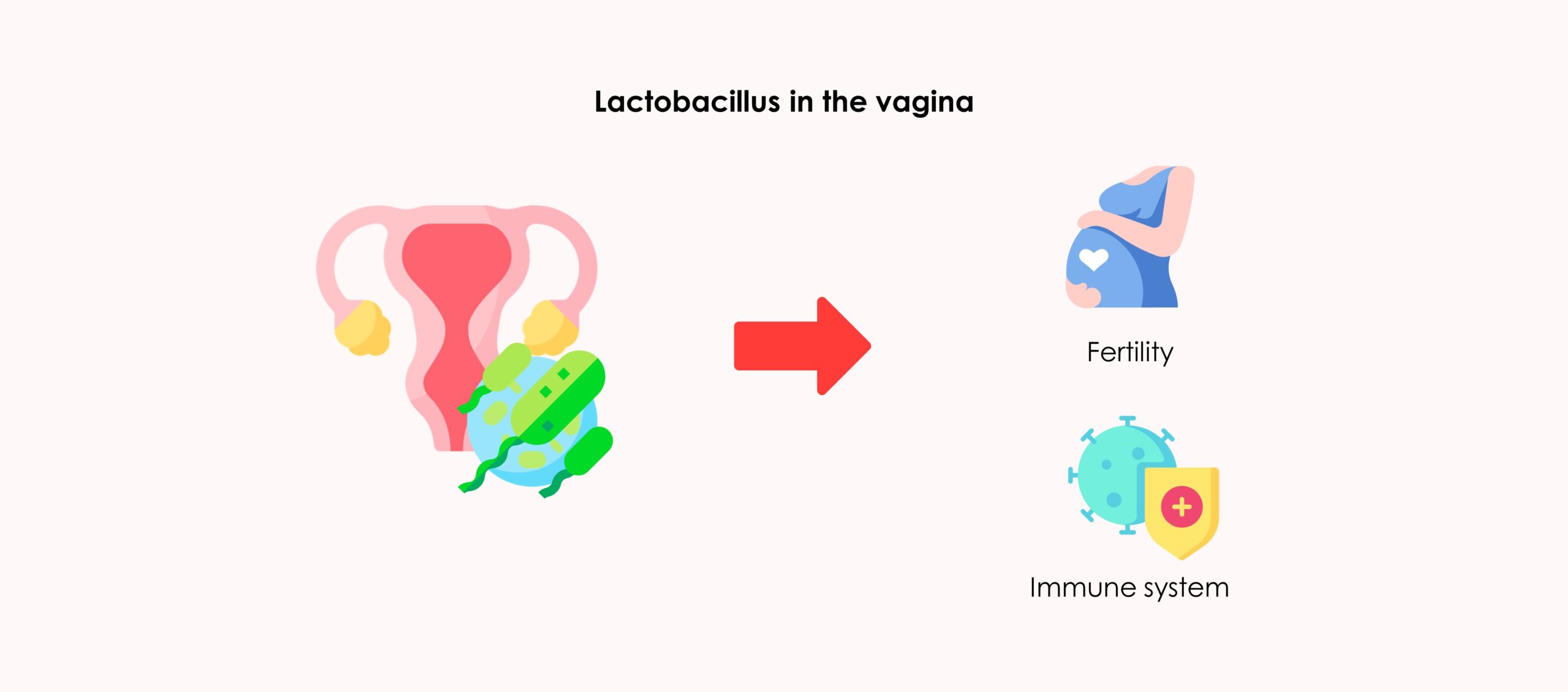To understand how useful probiotics may be, we first need to introduce the term microbiota. It refers to the millions of microorganisms that live in perfect balance within our body: bacteria, above all, but also viruses, fungi and yeasts. The microbiome plays an essential role in ensuring that our vital functions, including fertility, work properly.
What are probiotics
Probiotics are found mainly in the intestines but also, in smaller numbers, in other parts of our body. Probiotics can have beneficial effects on health but, if not well balanced, can give rise to toxic metabolites that make us ill.
There are several criteria to determine if the microbiota is healthy:
- It protects the body against pathogens (intestinal barrier).
- It helps digestion and the development of the immune system, the metabolism of essential amino acids, fatty acids and some vitamins.
- In the brain, it regulates higher functions such as sleep and behaviour.
- It reduces inflammation.

The first consequence of dysbiosis (the alteration of the microbiota) is inflammation which activates the immune system, thus resulting in intestinal, neurological, vaginal and reproductive symptoms.
Causes of the alteration of the microbiota
The main factors that can cause the alteration of the microbiome are:
- Stress
- Poor diet: sugary foods and refined carbohydrates, saturated fats, processed foods, preservatives
- Intake of drugs such as antibiotics, contraceptives, antacids, anti-inflammatories...
- Poor sleeping habits
- Heavy metals
- Toxic substances (tobacco, alcohol).

Most probiotics in the intestines belong to the Bifidobacterium strain, while the most common in the vagina are Lactobacillus.
Benefits of probiotics on female fertility
There are more than 100 different species of lactobacilli in the vagina, which protect against other bacterial colonisations, by regulating the immune system and creating a supportive microenvironment to promote fertility and pregnancy.

Lactobacilli produce lactic acid that is responsible for the acidification of the vagina. The concentration of Lactobacilli varies during the menstrual cycle as it is influenced by hormonal changes. Vaginal dysbiosis can contribute to conditions that affect fertility, such as endometriosis and bacterial vaginosis. A significant increase in the Akkermansia muciniphila species is found in infertile women.
The right amount of lactobacillus (>90% in the endometrium) is essential for the success of IVF-ICSI treatments. An alteration of vaginal probiotics may alter the response to gonadotropins in in vitro fertilization (IVF) cycles, hinder embryo implantation, lead to miscarriage and premature birth.
If you are trying to get pregnant and need to speak with a doctor specialised in assisted reproduction, you can request your first free consultation at Ginemed by calling +34 911892692.
Probiotics and sperm quality
In fertility, an imbalance in the microbiome may reduce the chances of a pregnancy in women and, at the same time, affect sperm quality in men, by altering parameters such as concentration, mobility and morphology.
Most recent studies suggest that the oral administration of probiotics is more effective than the vaginal one.





No hay comentarios